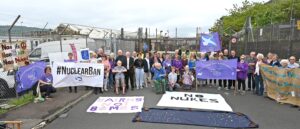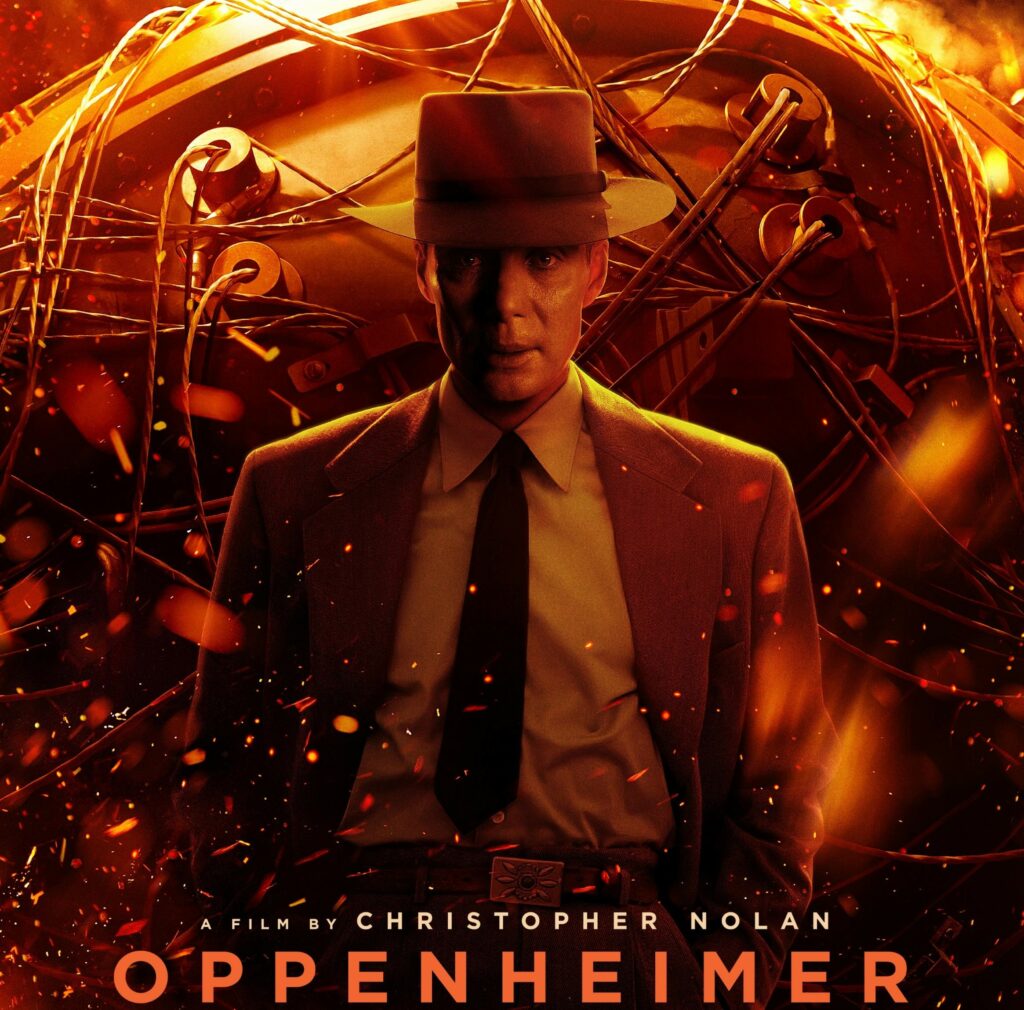Each year, 6th August marks both the Feast of the Transfiguration and the anniversary of the Hiroshima bomb.
This weekend, as Members meet on Iona in community, we’ll remember the hypocrisy of the Christian west dropping the atomic bomb on Hiroshima on the same day the church celebrates the revelation of the God of love and peace.
Thoughts of nuclear warfare are at the forefront of many these days, thanks to the cinema release of Oppenheimer. Former leader and decades-long campaigners against nuclear war, John and Molly Harvey, review Oppenheimer and remember the time they went to the cinema with a survivor of the Hiroshima bomb.

Review of Oppenheimer
“We went to see the film Oppenheimer the other day, with open minds. As an exploration of Oppenheimer’s life, it was certainly informative and gripping. It falls into three sections, covering his early formation as a nuclear physicist, the development of the atomic bomb (the Manhattan Project), and what happened to him afterwards. Cillian Murphy (of Peaky Blinders fame) plays a convincing role as the man himself. The film is held together by regular black and white flashbacks of his appearance before the House Un-American Activities Committee, when they tried – ultimately unsuccessfully – to pin the Communist label on him.
We left the cinema disappointed. There was a passing reference to his quotation of the famous passage from the Baghavad Gita, ‘I have become Death, the Destroyer of Worlds’. But apart from that, we didn’t feel the film attempted in any convincing way to struggle with the appalling nature of the forces he and his colleagues had unleashed. And the brief appearance of President Truman making the decision to drop the bomb on Japan (basically intended as a warning to the rampant USSR to keep their hands off the Far East) was unconvincing.
As a wake-up call to the nuclear powers today, especially in the light of the Treaty on the Illegal Use of Nuclear Weapons (not signed by the UK) and the Nuclear Non-Proliferation Treaty (signed by the UK, but currently disregarded as the UK is now increasing its stock), we didn’t feel the film hit the mark. Not by a long way.”
Hosting a Hiroshima survivor
“In the late 1960s, we hosted, in our home in Gorbals, Mr. Masashi Nii, a survivor of the Hiroshima bomb. He had been working under ground as an electrician, about a mile from the epicentre of the blast, and had survived. But was fatally affected by radiation when he emerged. Mr. Nii was on a world tour, determined, before he died, to alert the world to the danger it was now facing. We went with him to Faslane, the UK Nuclear Submarine Base on the Clyde, where we and many others have been protesting against Nuclear Weapons for decades. We took him to the Glasgow Film Theatre to watch a showing of the BBC film The War Game, which tried to depict in dramatic fashion the aftermath of a nuclear bomb on a British city. (The BBC refused to air it on TV until twenty years later.) When we came out of the cinema and asked him for his reaction to the film, all he could say was “Very bad film. Too many survivors”.
It’s probably unfair to say that Oppenheimer was a ‘very bad film’. But we didn’t feel it addressed at all effectively the moral and sheer monumental consequences of our current situation, never mind the complacency and ignorance around the issue.”

Demonstrating against chewing gum?
“In the run up to the Scottish Independence referendum in 2014, we demonstrated alongside SCANA every Friday in central Glasgow against Trident. John remembers, “some young men stopped and asked us “why are you demonstrating against chewing gum?” And so, if the film has, even in a small way, helped to push the Nuclear Weapons issue higher up the public and political agenda, then it will have been worthwhile.”
Iona Community Members and Associate Members meet regularly to shine a light on, advocate for and pray about common concerns, including peacemaking. If you would like to demonstrate against more than chewing gum, find out more about our advocacy work below.


